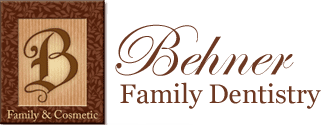
Gum Disease Awareness Month is an important time to remind ourselves of the significance of periodontal health. Your gums are just as vital as your teeth when it comes to maintaining a healthy smile. In this blog, we’ll explore the importance of gum health and provide actionable tips on how to take better care of your gums. Let’s dive in!
Understanding Gum Disease
Gum disease, also known as periodontal disease, is an infection of the tissues that support your teeth. It occurs when plaque, a sticky film of bacteria, builds up on the teeth and hardens into tartar. This causes inflammation and, if left untreated, can lead to tooth loss. There are two main stages of gum disease: gingivitis and periodontitis.
Gingivitis is the early stage of gum disease and is characterized by red, swollen, and bleeding gums. It can usually be reversed with good oral hygiene practices. Periodontitis, on the other hand, is the advanced stage of gum disease, and it can result in severe damage to the gums, bone, and other structures that support your teeth.
The Connection Between Gum Disease and Overall Health
Research has shown that gum disease is not only a dental issue but can also be linked to various health problems. Studies suggest that there is a connection between periodontal disease and conditions such as diabetes, heart disease, stroke, and even premature births.
This is because the bacteria that cause gum disease can enter the bloodstream and travel to other parts of the body, leading to inflammation and other health issues. Therefore, maintaining good gum health is essential for your overall well-being.
Proper Brushing Techniques
Brushing your teeth is a crucial part of maintaining healthy gums. It’s important to use the correct technique when brushing, as improper brushing can actually harm your gums.
To brush effectively, hold your toothbrush at a 45-degree angle to your gums and use short, gentle strokes to clean the outer and inner surfaces of your teeth. Be sure to also brush the chewing surfaces of your teeth and your tongue. Remember to replace your toothbrush every three to four months or when the bristles become frayed.
The Importance of Flossing
Flossing is another essential part of your oral hygiene routine. Flossing helps remove plaque and food particles from between your teeth and under the gumline, where your toothbrush can’t reach.
To floss effectively, use a piece of dental floss about 18 inches long, and gently slide it between your teeth in a C-shape motion. Be sure to floss both sides of each tooth and beneath the gumline. Aim to floss at least once a day.
Mouthwash for Gum Health
Using an antibacterial mouthwash can be a helpful addition to your oral hygiene routine. It can help reduce plaque, prevent gingivitis, and freshen your breath.
When choosing a mouthwash, look for one that is specifically formulated for gum health, such as those containing chlorhexidine or essential oils. Make sure to follow the directions on the bottle and swish the mouthwash around your mouth for at least 30 seconds before spitting it out.
Regular Dental Checkups and Cleanings
Regular dental checkups and cleanings are essential for maintaining gum health. Your dentist can detect early signs of gum disease and provide the necessary treatment to prevent it from progressing.
During a dental cleaning, your dentist or dental hygienist will remove plaque and tartar buildup that you may have missed during your regular brushing and flossing. Aim to schedule a dental checkup and cleaning at least twice a year.
Eating a Balanced Diet
Your diet plays a significant role in your gum health. Consuming a balanced diet rich in vitamins and minerals can help support strong gums and prevent gum disease. Foods high in vitamin C, such as oranges, strawberries, and broccoli, can help promote gum health by strengthening the tissues that support your teeth.
On the other hand, it’s essential to limit your intake of sugary and acidic foods, as they can contribute to plaque buildup and increase the risk of gum disease. Additionally, staying well-hydrated by drinking plenty of water can help wash away food particles and bacteria, further promoting good gum health.
Avoiding Tobacco and Limiting Alcohol
Tobacco use, including smoking and smokeless tobacco, is a significant risk factor for gum disease. The chemicals in tobacco can cause gum inflammation, weaken your immune system, and impair your body’s ability to heal itself.
If you use tobacco products, quitting is one of the best decisions you can make for your gum health. Additionally, excessive alcohol consumption can lead to dry mouth and reduced saliva production, which can increase the risk of gum disease. It’s essential to limit your alcohol intake to promote optimal oral health.
Recognizing the Signs of Gum Disease
Being aware of the early signs of gum disease can help you take action before it progresses. Common symptoms include red, swollen, and bleeding gums, persistent bad breath, gum recession, and loose teeth. If you notice any of these signs, it’s crucial to schedule an appointment with your dentist for a thorough evaluation and appropriate treatment.
Gum Disease Awareness Month serves as a crucial reminder of the importance of periodontal health. By following these tips and maintaining a consistent oral hygiene routine, you can keep your gums healthy and prevent gum disease. Don’t wait until it’s too late – book an appointment with your dentist today to ensure your gums are in tip-top shape!

